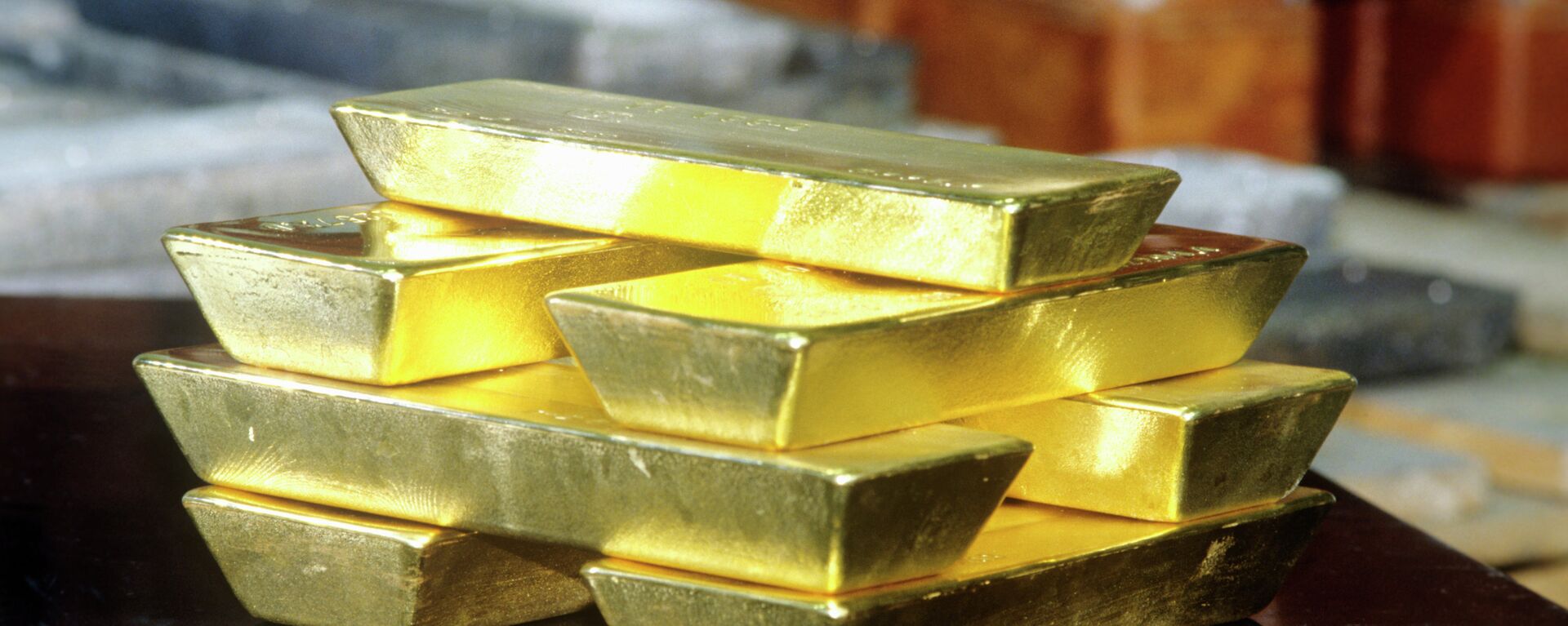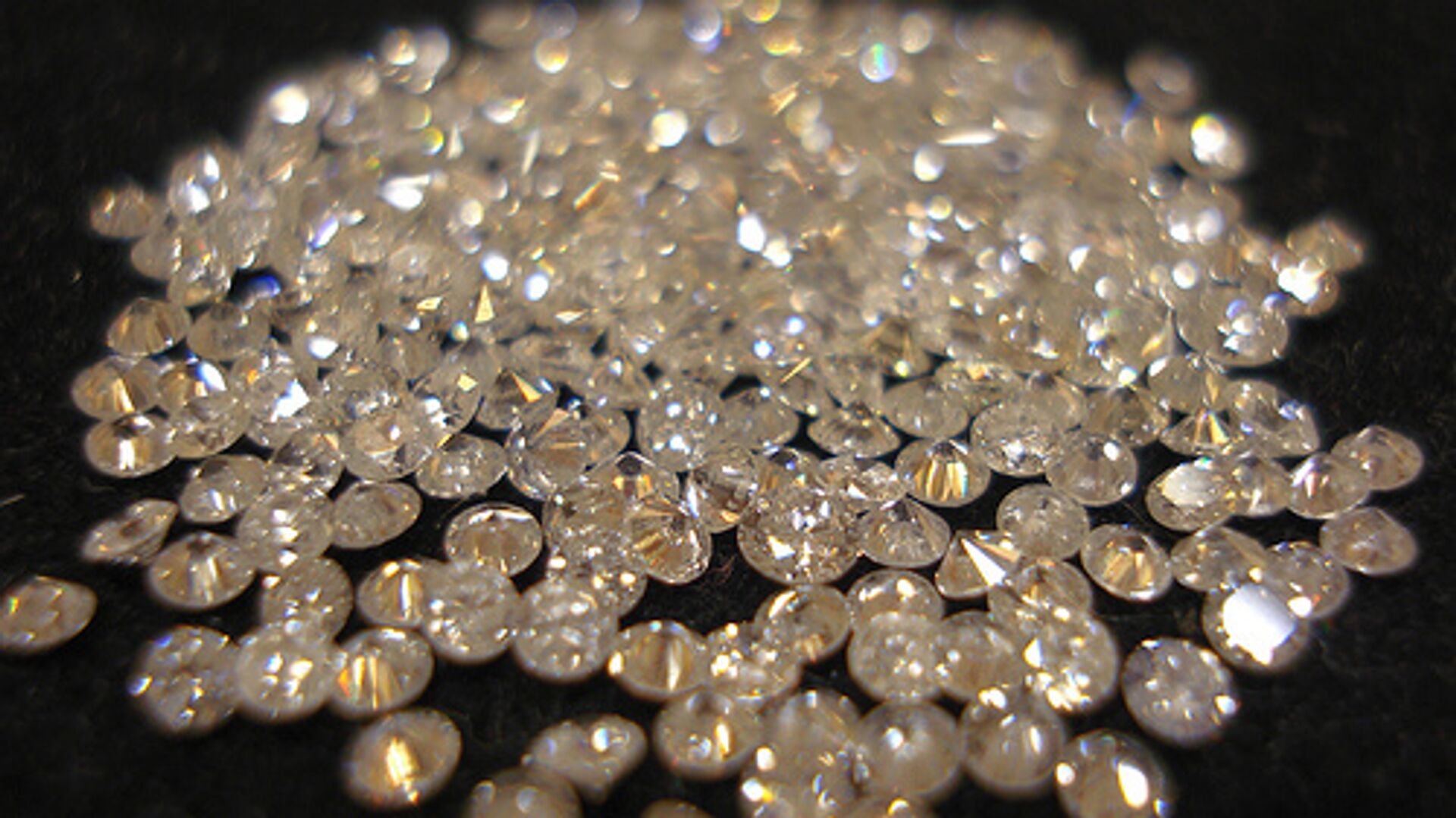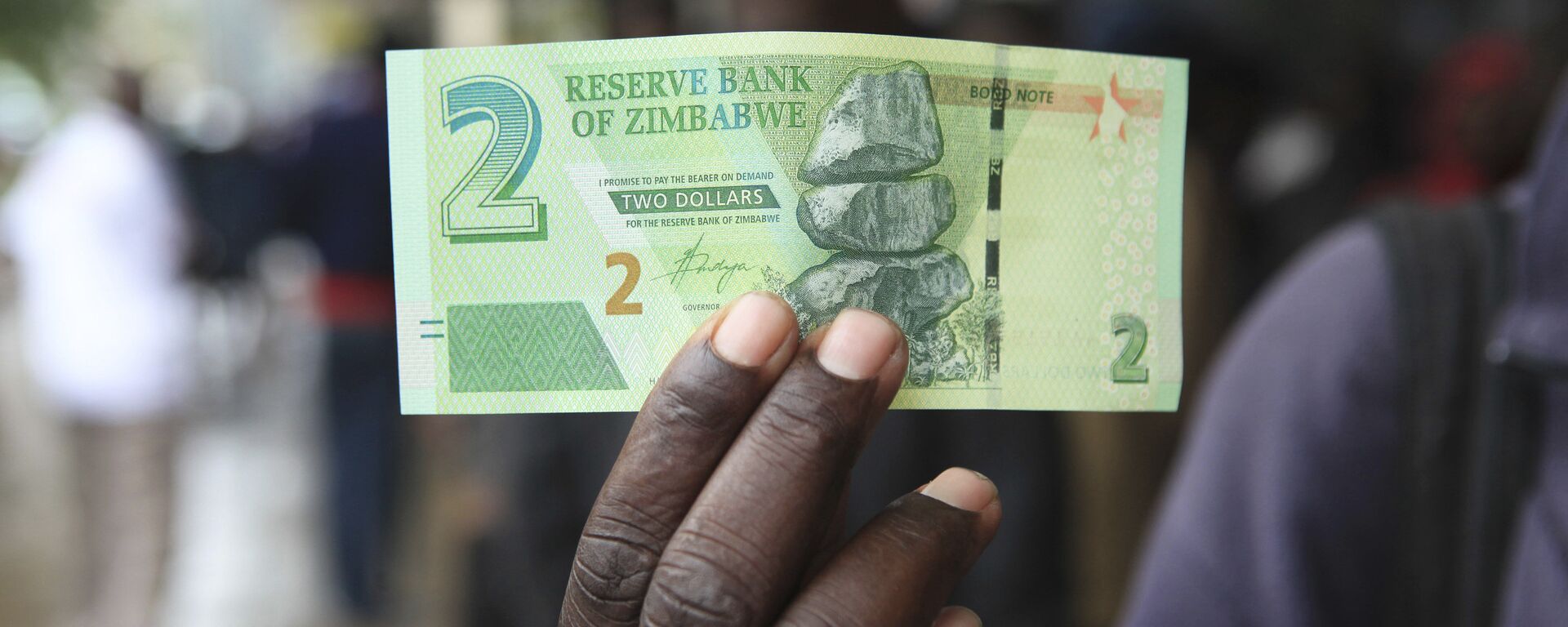https://sputnikglobe.com/20221009/president-zimbabwes-new-mining-royalty-to-forge-national-reserve-of-precious-minerals-1101647501.html
Zimbabwe Introduces Scheme to Build Up National Reserve of Precious Minerals
Zimbabwe Introduces Scheme to Build Up National Reserve of Precious Minerals
Sputnik International
In a letter written in September to the Ministry of Mines, Zimbabwe’s Treasury Secretary George Guvamatanga raised his concerns that “despite the abundant... 09.10.2022, Sputnik International
2022-10-09T05:38+0000
2022-10-09T05:38+0000
2024-06-08T13:08+0000
africa
emmerson mnangagwa
zimbabwe
mining
lithium
platinum
impala platinum holdings limited
gold
southern africa
diamonds
https://cdn1.img.sputnikglobe.com/img/15635/62/156356295_0:47:500:328_1920x0_80_0_0_a2c3e02fa8acf1147138e2c031ab1576.jpg
A new policy which is due to come into effect in Zimbabwe this month will require mining companies extracting high-value minerals to pay half their royalties to the government in refined mineral produce.This will allow Zimbabwe to build up a national reserve of precious minerals to “augment the country’s credit-worthiness” and help “circumvent and fend off funding limitations caused by illegal sanctions imposed on the country,” President Emmerson Mnangagwa wrote in his weekly column for The Sunday Mail.Mnangagwa said he had directed the Ministries of Finance and Economic Development and Mines and Mining Development to finalize the guidelines of the policy that initially targets four of the nation’s key minerals.He said the plan would ensure that these strategic minerals are shared “with those who come after us”.According to the president, the Reserve Bank of Zimbabwe (RBZ) promised to set up a "foolproof system" to collect the required quota of minerals from companies, including those processed outside the country.The quota policy, added the president, would work in tandem with the Sovereign Wealth Fund “to secure and achieve inter-generational equity”. Furthermore, minerals may be added or removed from the national reserve bracket, in line with the “flexible” policy reflecting “geological scarcity and global demand”.Before this policy was introduced, platinum miners paid 2.5 percent in royalties in cash to the government. Gold royalties are 5 percent with gold worth more than $1,200 an ounce.According to the president, the government’s new policy on mining royalties must “never be frozen in time”.He hailed the plan that would boost the minting and selling of gold coins locally, allowing the country to buoy its currency, “while stimulating national savings”.It is also hoped that the “dual/split interpretation of mining royalties” will boost the cash revenue for the running of state affairs, according to the government.Zimbabwe’s highly diversified mining sector encompasses nearly 40 different minerals, predominantly platinum group metals (PGM), chrome, gold, coal, and diamonds. The country boasts the world’s third-largest reserves of platinum, and also mines nickel, lithium and coal.Mining companies that operate in Zimbabwe include subsidiaries of Impala Platinum Ltd, Anglo American Platinum Ltd and Sibanye Gold Ltd.Zimbabwe’s Treasury Secretary George Guvamatanga wrote to the Ministry of Mines in September, raising his concerns "that despite the abundant mineral resources that the country has at its disposal, there are currently no reserves for key minerals,” newzwire, Zimbabwe's leading financial news website, reported.Reserves of minerals “serve as a source of trust in a country given that they carry no credit or counterparty risks”, Guvamatanga wrote, adding:Despite a growing output of gold, the country exports most of its production, leaving it with no gold reserves. Overall, mineral exports from Zimbabwe, mainly gold and PGMs, reached $5Bln in 2021. This accounted for 80 percent of the country’s total export value, according to newzwire.Back in August, Finance Minister Mthuli Ncube said that government income from the mining industry was low because of “a generous royalty regime on some major minerals”.
https://sputnikglobe.com/20201012/lure-of-gold-puts-hikers-paradise-at-risk-as-illegal-mining-surges-in-zimbabwe-mountains-1080747562.html
https://sputnikglobe.com/20190308/us-sanctions-zimbabwe-1073062659.html
africa
zimbabwe
southern africa
Sputnik International
feedback@sputniknews.com
+74956456601
MIA „Rossiya Segodnya“
2022
News
en_EN
Sputnik International
feedback@sputniknews.com
+74956456601
MIA „Rossiya Segodnya“
Sputnik International
feedback@sputniknews.com
+74956456601
MIA „Rossiya Segodnya“
emmerson mnangagwa, zimbabwe, mining, lithium, platinum, impala platinum holdings limited, gold, southern africa, diamonds
emmerson mnangagwa, zimbabwe, mining, lithium, platinum, impala platinum holdings limited, gold, southern africa, diamonds
Zimbabwe Introduces Scheme to Build Up National Reserve of Precious Minerals
05:38 GMT 09.10.2022 (Updated: 13:08 GMT 08.06.2024) In a letter written in September to the Ministry of Mines, Zimbabwe’s Treasury Secretary George Guvamatanga raised his concerns that “despite the abundant mineral resources the country has at its disposal, there are currently no reserves for key minerals”.
A new policy which is due to come into effect in
Zimbabwe this month will require mining companies extracting high-value minerals to pay half their royalties to the government in refined mineral produce.
This will allow Zimbabwe to build up a national reserve of precious minerals to “augment the country’s credit-worthiness” and help “circumvent and fend off funding limitations caused by
illegal sanctions imposed on the country,” President Emmerson Mnangagwa
wrote in his weekly column for The Sunday Mail.
Mnangagwa said he had directed the Ministries of Finance and Economic Development and Mines and Mining Development to finalize the guidelines of the policy that initially targets four of the nation’s key minerals.
“Two of them are precious; they are gold and diamonds. These must now be stockpiled both for prudence and inter-generational equity. The other two are high-value minerals, and these are lithium and the platinum group metals,” the president wrote.
He said the plan would ensure that these strategic minerals are shared “with those who come after us”.
According to the president, the Reserve Bank of Zimbabwe (RBZ) promised to set up a "foolproof system" to collect the required quota of minerals from companies, including those processed outside the country.
The quota policy, added the president, would work in tandem with the Sovereign Wealth Fund “to secure and achieve inter-generational equity”. Furthermore, minerals may be added or removed from the national reserve bracket, in line with the “flexible” policy reflecting “geological scarcity and global demand”.
Before this policy was introduced, platinum miners paid 2.5 percent in royalties in cash to the government. Gold royalties are 5 percent with gold worth more than $1,200 an ounce.
According to the president, the government’s new policy on mining royalties must “never be frozen in time”.
“As I write, by-products from platinum mining, such as rhodium, palladium, silver, cobalt and gold, now account for 80 percent of mining revenues at today’s prices, whereas the flagship platinum only contributes a paltry 20 percent! Our policy should thus be flexible enough to respond to such changes and trends in the global metals market,” the president added.
He hailed the plan that would boost the minting and selling of gold coins locally, allowing the country to buoy its currency, “while stimulating national savings”.
It is also hoped that the “dual/split interpretation of mining royalties” will boost the cash revenue for the running of state affairs, according to the government.
Zimbabwe’s highly diversified mining sector encompasses nearly 40 different minerals, predominantly platinum group metals (PGM), chrome, gold, coal, and diamonds. The country boasts the world’s third-largest reserves of platinum, and also mines nickel, lithium and coal.
Mining companies that operate in Zimbabwe include subsidiaries of Impala Platinum Ltd, Anglo American Platinum Ltd and Sibanye Gold Ltd.

12 October 2020, 12:42 GMT
Zimbabwe’s Treasury Secretary George Guvamatanga wrote to the Ministry of Mines in September, raising his concerns "that despite the abundant mineral resources that the country has at its disposal, there are currently no reserves for key minerals,” newzwire, Zimbabwe's leading financial news website, reported.
Reserves of minerals “serve as a source of trust in a country given that they carry no credit or counterparty risks”, Guvamatanga wrote, adding:
“The Treasury, therefore, proposes that the collection of royalties for the above-mentioned minerals be split as 50 percent cash and the other 50percent in the form of the commodity itself.”
Despite a growing output of gold, the country exports most of its production, leaving it with no gold reserves. Overall, mineral exports from Zimbabwe, mainly gold and PGMs, reached $5Bln in 2021. This accounted for 80 percent of the country’s total export value, according to
newzwire.Back in August, Finance Minister Mthuli Ncube said that government income from the mining industry was low because of “a generous royalty regime on some major minerals”.




